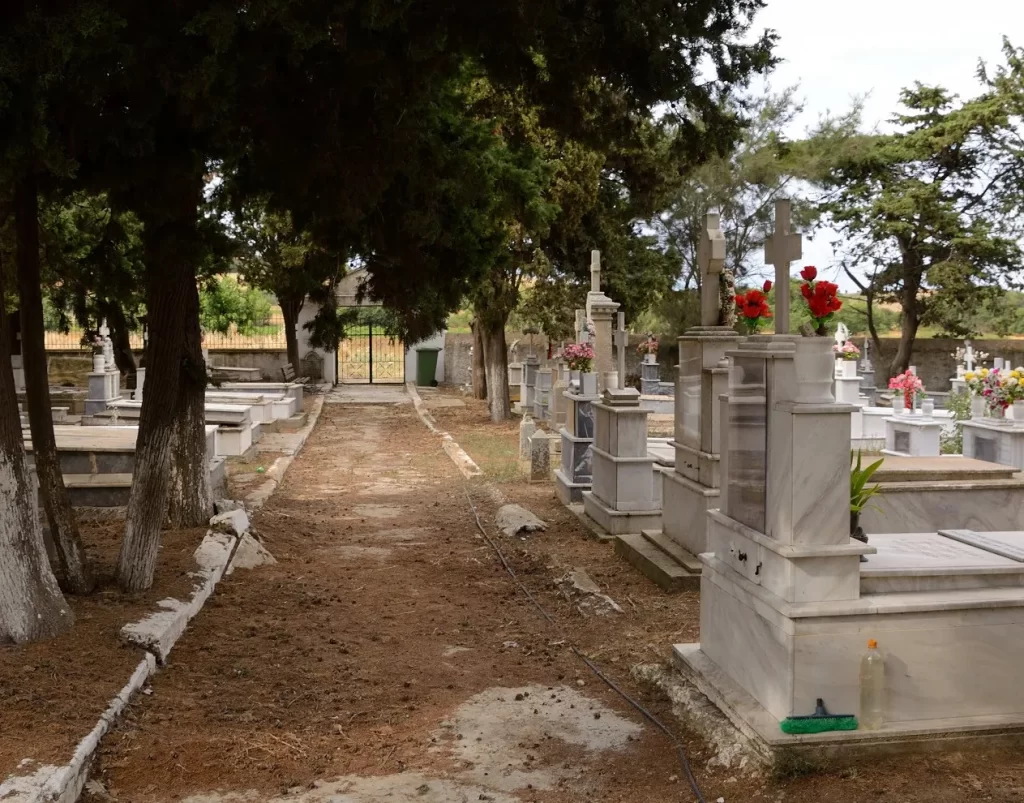July 1, 2024
Why I Want to be Forgotten when I Die
For most people – certainly for most artists – to be forgotten when they die is not something they would wish. They would like to be remembered for a long time. Sometimes, when they fantasize about success, they might even dream of an undefined future, long after their demise, with their name still associated with artistic or other achievements.
Not me. I want to be forgotten when I die. I want my art, in particular, everything that I’ve made – from novels to songs to drawing – to disappear as if it had never existed.
This might sound counterintuitive, odd, and to some readers even hypocritical. I don’t blame you. As I said, to be forgotten when you die is not something you hear often from the mouth of people who create. Yet my motivations, as always, are entirely selfish. The deeper reasons might even be useful to you.

Being Forgotten when You Die Is about Control
As I said, the reasons are selfish: I don’t want things that I spent time and energy creating, often as a result of other failures, to escape my control.
One may ask, What do you care; you’ll be dead. Fair enough, when we’re dead, we don’t exist (indeed, “we” and “are” are highly problematic words to pair with “dead”). If I don’t exist, why should I care what happens to anything I made, right?
To an extent, yes; of course. But as I said, since I will no longer be around to correct mistakes, make improvements, answer to criticism, or clarify misunderstandings, I also can’t accept any of these works to lie around. If I’m forgotten when I die, with all my creations gone, I won’t have to preemptively worry about such things.
This thing might sound crazy – heck, maybe it is? – but it’s very real to me.
To Whom Does Art Belong?
The catchy answer is, To Everyone; the intriguing answer is, To Nobody.
The real answer is, to me: My art belongs to me.
Art like mine that is non-collaborative – i.e. unlike a film or song composed by a group of people – belongs to its creator, end of story. We could have an ontological discussion relevant to imagination and where it comes from, but keeping it simple, few people would disagree with this on a practical level.
Fuck the Living!
Undeniably, there’s also an element of spitefulness in the whole thing: If only a small number of people were interested in my art while I was alive, I don’t want others to discover it when I’m dead. Let’s remember something I mentioned in the post on metatextuality, related to my novel Illiterary Fiction:
A couple of those texts aren’t quite what Illiterary Fiction presents them as. One such example would be an excerpt from a book by “someone who died unknown, but [who is] respected nowadays”, as the protagonist informs his readers – and mine; readers of Illiterary Fiction, that is. The hilarious detail of course, to anyone familiar with my work, is that the excerpt is from my novel The Other Side of Dreams, and I assure you, I haven’t died yet (as I’m writing these lines, anyway).
Unlike what the book implies, this isn’t a scenario I want. I do not want to die “unknown” and be respected later. I’m fine with the first part, it’s the latter I can’t stand. The very thought of my novels becoming popular and (over-)analyzed 200 years from now is horrifying.
Let them die with me, gracefully!
How Can I Be Forgotten when I Die, Practical Aspects
Obviously, the circumstances of my demise would greatly impact the whole thing. Dying in my 80s after a terminal illness is an entirely different context compared to getting a heart attack as I’m typing this.
In the latter case, I have no control because I haven’t done anything about it. In the former, I might be either too weak or too cynical, scared, bored, or nihilistic about it to do anything. There’s also the chance I might not know what to do at that time – though age in itself shouldn’t be an issue, societies do change rapidly. Above all I need to ask myself something:
How serious am I about this whole thing?
Tricky question. I’m basically serious enough to write a post about it, but I’m not sure I’m serious enough to do something about it now or even at any point while I still feel healthy and not Methuselah-level old. The living have an immense amount of confirmation bias, after all. In other words, “all this feels irrelevant and premature right now” – famous last words!
Checklist for Wiping One’s Literary Remains
Still, if we assumed I’d like to do something about it, I’d probably need to do the following:
- Wipe the homeforfiction server. This doesn’t remove traces on the internet (e.g. on the Wayback Machine), so the blog posts will likely survive, but because the rest of the site (e.g. books, apps, Punning Walrus, etc.) are partially coded in PHP, wiping the server will render them inoperable. In other words, you can’t use the apps, download the books, or see Punning Walrus on the Wayback Machine.
Delete everything from my Amazon KDP account.I’ve done this already!- Wipe my music from Bandcamp and YouTube.
That’s it, basically. That’s the limit of what I can do – and it’s not really enough. I might be completely unknown, but there are still plenty of book copies out there (digital and physical), as there are plenty of mp3s containing my music.
I guess, however, this begins to reach the “fugg it, I don’t care” stage. So, I’ll leave you with a delightful message from George Carlin and his view on “the sanctity of life”:
I don't show you ads or newsletter pop-ups; everything is offered for free. Wanna help support a human internet?
